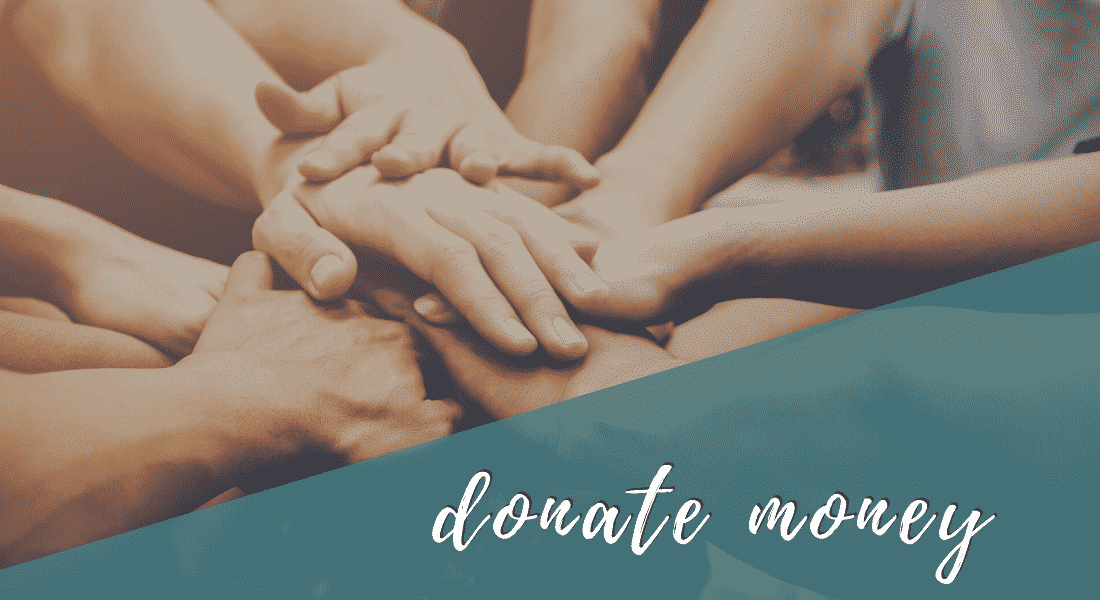8 Psychological Reasons Why People Give
- Social Dynamics. Some people give because a particular cause or organization matters to someone they care about. ...
- Altruism. Many people who donate to charity believe it’s important to help people in need. ...
- Trust. ...
- Impact. ...
- Goal Proximity. ...
- Overcoming difficulty. ...
- Egoism. ...
- FOMO. ...
Why you should donate more money to charity?
Nov 10, 2021 · The Secret to Getting People to Give. Giving isn’t a business transaction. It’s a human connection. To inspire donors to give, you need to make a meaningful connection by showing them why they matter and how they can make a difference. When you understand why your donors give, you’ll be able to make a more effective appeal.
How to get people to donate money to you?
The power of social media combined with the ease of online giving has contributed to the rise in popularity of peer-to-peer giving. The more people see their peers involved in a cause, the more likely they are to participate and donate. Plus, participating in social campaigns is fun. 7. They want tax benefits. Donors say: “I want the tax deduction.”
Why do people still donate to universities?
Nov 26, 2017 · People are more likely to give to nonprofits that they trust will use their donated money to make a difference. Altruism Donors tell us again and again that they find it …
Why should we donate money to charity?
Why many young people and teenagers who do not even have a job or even adults who work for their money, decide to donate large amounts of money to big streamers like ninja, for example, who earn more than 500k per month and do not need that money more than yourself

What percentage of donors point to their religious values as a key motivation for their commitment to charity?
Selfless giving is often a key component of many spiritual and religious belief systems and an overwhelming 71% of donors pointed to their religious values as a key motivation for their commitment to charity.
What percentage of people interviewed spoke of personal, life-changing experiences that sparked their giving?
61% of people interviewed spoke of personal, life-changing experiences that sparked their giving. These varied from having directly experienced the hardships of the developing world, to suffering a loss of a family member who battled a disease.
Hearts over heads
Many people are also aware that they should donate to the causes that have the highest impact, but facts and figures are less attractive than narratives.
Influenced by others
Another of the major takeaways from the research in this area is that giving is fundamentally a social act. One study shows that people give significantly more to their university if the person calling and asking for their donation is their former roommate.
Giving is contagious
The good news is that charitable giving is contagious – seeing others give makes an individual more likely to give and gentle encouragement from a prominent person in your life can make also make a big difference to your donation decisions – more than quadrupling them in our recent study.
The Secret to Getting People to Give
Giving isn’t a business transaction. It’s a human connection. To inspire donors to give, you need to make a meaningful connection by showing them why they matter and how they can make a difference. When you understand why your donors give, you’ll be able to make a more effective appeal.
Here are the top 8 reasons for donating, from most important to least
I know there is a need for the nonprofit’s mission in my community and I know it does good work
Putting this into action
Yes, your nonprofit has to show that it’s a good steward of donor money and you need to show where all that generosity is going, but your appeal must contain more than numbers and pie charts.
What does a donor say?
They want to be part of something. Donors say: “ I want to be associated with the organization and its brand.”. Donating is an emotional act, and people connect more to personal stories than statistics or broad statements. Put a human face on your facts and statistics, and get to the heart of the matter.
Why do people stay with you?
They stay with you because you prove yourself worthy of their trust and commitment. Transparency and dependability are key. When you say you’re going to do something, be true to your word. 3. They get to see the impact. Donors say: “The nonprofit communicates about the impact of giving by sharing program outcomes.”.
What is the 2017 Tax Cuts and Jobs Act?
Donors say: “I want the tax deduction.”. The 2017 Tax Cuts and Jobs Act (TCJA) will impact every individual and organization. Nonprofits are watching how the standard deduction increase and elimination of personal exemptions will affect charitable giving.
Does giving to charity make you feel good?
Donating to charity feels good. Scientific studies have proven that generosity stimulates dopamine, which creates similar brain activity in the regions connected to the experience of pleasure and reward.
Why do people donate to charity?
Many people who donate to charity believe it’s important to help people in need. They feel that people should give to others because it’s the right thing to do. While psychologists debate whether pure altruism is real, altruistic people enjoy giving and receive pleasure from the action.
Why do people give?
There are lots of reasons why people give. Some give because they want to help others. Some give because it’s their family or religious tradition . Some want to make their community a better place.
What is the martyrdom effect?
Psychologists sometimes call this the martyrdom effect. It takes place when people expect to have to endure pain or difficulty to achieve a goal. Think about the “ice bucket challenge” or the number of people who sign up for charity marathons. People actually want a challenge.
Why do people give money to charity?
A lot of the time people will give because they want to support a certain cause, they get a great satisfaction for helping others, they want to build relationships in the community, they will receive a huge tax deduction, and to be role models for others.
Why are donors more likely to give?
Donors are also more likely to give when they think that their donation will make a difference. But donors don’t give only from the heart, Bekkers and Wiepking found. They also consider the costs and benefits of giving and the benefits to themselves, such as feeling good or looking good to others.
Why do people give to charities?
Millions of people give to charity on a regular basis to support causes they believe in, as well as for the positive effect it has on their own lives.
Why do we give?
In our research, Why we give, a feeling of social conscience was the most widely-given reason to give to charity. Whatever type of charity work they supported, 96% said they felt they had a moral duty to use what they had to help others, a sentiment very much rooted in their personal values and principles.
Why is it important to have the power to improve the lives of others?
Having the power to improve the lives of others is, to many people, a privilege, and one that comes with its own sense of obligation. Acting on these powerful feelings of responsibility is a great way to reinforce our own personal values and feel like we’re living in a way that is true to our own ethical beliefs.
Why is family giving important?
Family giving creates a bond, helping to bolster relationships through a shared goal and raising more money than could otherwise be possible through individual donations. Chances are, many of your family members are already giving to charity, so working together could help you to make even more of a positive impact.
Is it better to donate or receive?
Donating to charity is a major mood-booster. The knowledge that you’re helping others is hugely empowering and, in turn, can make you feel happier and more fulfilled. Research has identified a link between making a donation to charity and increased activity in the area of the brain that registers pleasure - proving that as the old adage goes, it really is far better to give than to receive.

Popular Posts:
- 1. what are good canned foods to donate
- 2. how to donate to california fire victims
- 3. what tests are done when you donate blood
- 4. when to donate clothes
- 5. where can i donate sperm in wisconsin
- 6. what can people that donate to your paypal see
- 7. why should i donate to my college
- 8. what color makes people want to donate
- 9. how t ochoose a charity to donate to
- 10. where to donate blood antioch ca